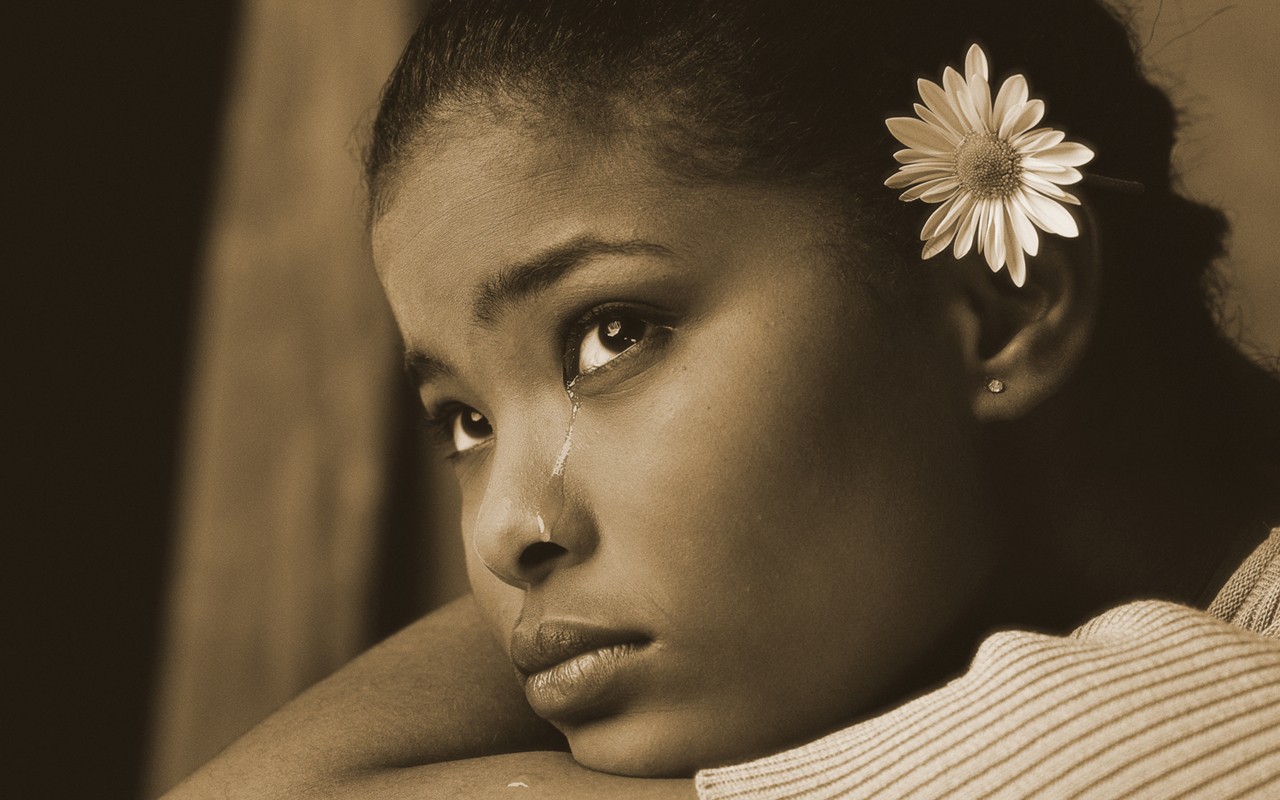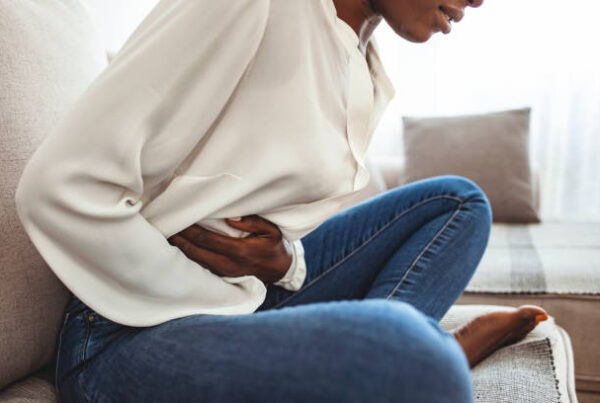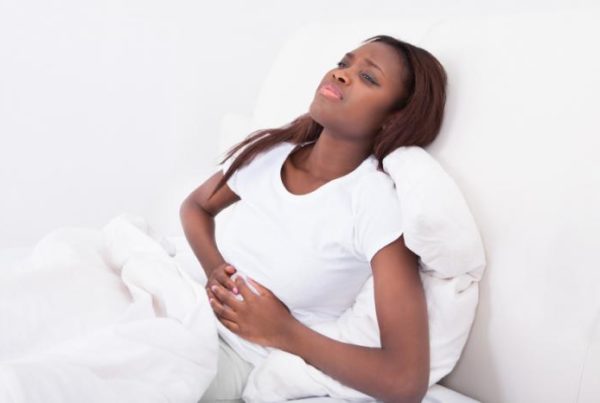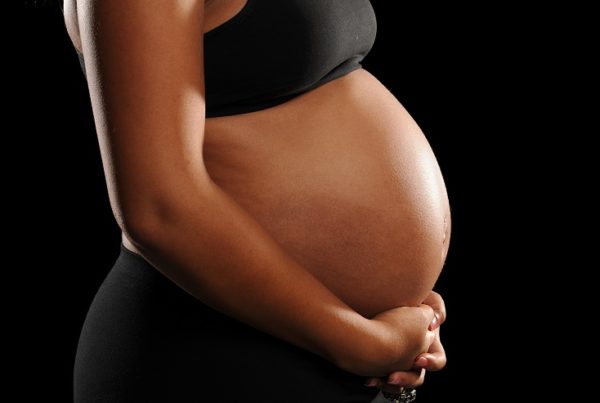Quite often, a man finds it hard to understand how his partner’s monthly period pain can be so bad that she regularly has to cancel plans to be intimate. If your spouse has abdominal cramping around or beyond the time of her period, please try to realize that she is in no way just being oversensitive or fussier than other women.
Having a partner who suffers from severe abdominal pain on several days every month often affects intimacy and life together as husband and wife in general. It is not an easy situation to deal with, but effective relief is often available.
Some women experience unbearable pains with any form of intercourse, but others experience it only with deep penetration. Other women feel pain only at certain times of the month, such as around the time of the period, while others feel it throughout the month. This is the challenge with women with endometriosis.
Pain during or after sexual intercourse is a common symptom for women with endometriosis – a disorder that affects women in their reproductive years and is a significant factor in treatment of female infertility.
Endometriosis is a medical condition where the kind of tissue that usually lines the womb also grows in other parts of the body. These “growths” are called endometrial implants and may be small or larger in size. Like the lining of the womb, they build up and are shed every month. But, unlike period (menstrual) blood, the tissue that is shed in the abdomen cannot leave the body, so inflammations and scars often develop.
Blood and tissue shed from the endometrial growth have no way of leaving the body, hence resulting in internal bleeding, inflammation that may result in pain, adhesions and bowel problems.
The endometrial implants may grow on a woman’s ovaries and in her Fallopian tubes, which can lead to fertility problems. Sometimes women first find out that they have endometriosis only when they consult the doctor who refers them to a fertility specialist because they have not been able to get pregnant despite trying for a long time. Endometriosis can cause infertility by damaging and blocking the fallopian tube.Thus impeding the journey of the eggs down the fallopian tube to the uterus.
Up to 50 percent of women with endometriosis complain of painful intercourse, and 75 percent of them suffer from sexual pain— often leading them to avoid sex. The reason is because deep penetration can put pressure on areas where endometriosis occurs, such as the ligaments attaching the uterus to the pelvis or the lining of the pelvis. Any touch to those areas can be extremely painful.
The pain of this kind of painful intercourse has been described as sharp, stabbing, jabbing or a deep ache for the woman. It ranges in intensity from mild to excruciating. It may be felt during intercourse, for up to 24–48 hours after intercourse, or both.
Unfortunately, this development all too often causes couples immense emotional pain and turmoil. Some of this can be avoided with an understanding of the problem, better communication, and a little experimentation. About 1 out of 10 women have endometriosis. Whether or not it causes symptoms, and what kind of symptoms women have, depends on things like where the endometrial implants are and how bad the inflammations are. Some women hardly have any symptoms, whereas others are regularly immobilised by painful cramping.
Correct and prompt diagnosis and treatment of endometriosis is vital. As a contributor to the problem of unexplained infertility and chronic pelvic pain, endometriosis deserves more attention than it is currently getting within medical circles in the country.
It is often misunderstood and misdiagnosed, yet it is treatable, but the pain it causes is worse than a painful toothache. The diagnosis is made worse in Nigeria because we are told it is not common amongst blacks. But there is need to let the women who suffer this disorder know that no matter the pain they are feeling, they are not alone.
At least 30-40 percent of couples with problem of infertility have endometriosis, and as a result of its genetic nature, it is common amongst sisters and even cousins. Most women, who have it, do not have symptoms. Of those who do experience symptoms, the common symptoms are pain (usually pelvic) and infertility. It can be one of the reasons for infertility in otherwise healthy couples.
Sadly, the exact prevalence of endometriosis in Nigeria is not known, since many women may have the condition and have no symptoms, but most are diagnosed around the age of 25-35 years, although it has been reported in girls as young as 11 years of age. It is rare in postmenopausal women, but runs in families and delaying pregnancy until an older age is also believed to increase the risk of its development.
Dealing with painful intercourse can be a difficult and emotional task. It needs open and honest communication between affected partners. It also needs both of them to be patient and understanding towards each other. Severe abdominal pain and cramping can force most women to make changes in everyday life.
As a woman with endometriosis you need to explain to your partner the nature of your pain, and how it affects you, physically and emotionally. You also need to talk about your need to love and be loved; your fear of intercourse and fear of intimacy that may lead to intercourse; your guilt about not being able to have intercourse, and your fear that your unwillingness to have intercourse will be interpreted as a sign of rejection.
Pain during or after sex might reduce a woman’s desire to have sex. Many women who experience pain during or after sex simply try to avoid sex and they often feel bad about doing so. Some women simply “get on with it” despite the pain because they would like to get pregnant, or are afraid that their partner might feel rejected or even leave them if they do not have sex.
Women find it helpful if their partner takes them seriously and understands how much the endometriosis affects their life. In phases when the symptoms are worse, it is easier for women to cope if they are given support in everyday life. If painful sex is a problem, trying out if different positions or techniques might improve things. These may include extended, relaxed lovemaking sessions that do not necessarily involve sexual intercourse.It is better to be open and honest so you and your partner can learn which situations create pain. That way you can learn which situations to avoid, so you can both have pleasurable and satisfying intimacy together.
For the man, it is easy to feel a little rejected or dissatisfied, particularly if you do not understand why your partner does not want to have sex. Knowing that sex is painful for your partner could definitely make you feel guilty or uncomfortable. So sexuality can easily become an issue within relationships. Not being able to get pregnant often adds to the burden on relationships. Worse still, discovering that your woman’s fertility problems are being caused by endometriosis can cause mixed feelings. On the one hand, you know what is causing it, which means there are treatment options.
Once you have discussed and resolved some of these issues, you will have the foundations for moving on and finding ways of resolving the problem. Some women are able to enjoy intercourse if it is shallow, or if slow and gentle penetration is used. You may like to try experimenting with foreplay and artificial lubricants. Some women are able have pleasurable intercourse if there is plenty of foreplay to stimulate the natural lubricants. Similarly, it may be appropriate to try experimenting with the timing of intercourse. Some women find that intercourse is pleasurable at certain times of the month, such as in the week after ovulating or in the two week period after having a period. If you can identify the times when intercourse is pain-free, make that time of the month a special time to enjoy intimacy together.
There is no need for you, as a partner, to completely ignore your own desires and needs. Although you may not be directly affected by the symptoms, you will probably have to share the burden of the effects they have in your life together. It is important to find out how much support your partner would like to have, and then give her that support if possible. But it is also just as important not to ignore your own problems and feelings. Men often avoid talking about these things because they are worried that it may cause their partner even more distress.
However, even with the most patient and sensitive experimentation, some women will not be able to experience pain-free intercourse because of their endometriosis. If this is the case, you need to seek a more permanent solution and treatment. Treatment can help relieve the symptoms of endometriosis. But the treatment can also be distressing in itself. The diagnosis and treatment of endometriosis is a challenge, especially in terms of the availability of equipment and training of doctors to recognise it. Over 500 cases of this disorder have been diagnosed and treated at Nordica Lagos, Abuja and Asaba, over the years.
Endometriosis is often misdiagnosed leading to delays in treatment, sometimes for several years. The surest way to diagnose endometriosis is by laparoscopy, an operation performed under general anaesthetic, where a small instrument called a laparoscope (a tube like telescope with light in it), is inserted into the abdomen through a cut in the belly button. The goals of endometriosis treatment include pain relief and/or enhancement of fertility.





